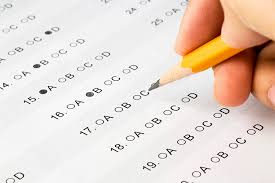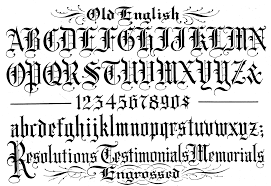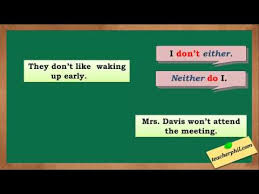Recommended Grammar links for learning from Beginner to Advanced
Recomendamos los siguientes enlaces donde se puede encontrar todo tipo de practicas en todas las áreas de la gramática.
O si prefieres, Chistes sobre la gramatica inglés – Grammar Jokes!
 PRESENT TENSES
PRESENT TENSES
e.g. I play. He plays. Do they play? Does she play? She doesn’t play. They don’t play.
e.g. I am playing. He is playing. We are playing. Are we playing? Is she playing? I am not playing. They aren’t playing.
e.g. I have played. She has played. Have they played? Has he played? No, it hasn’t played. No, they haven’t played.
 PAST TENSES
PAST TENSES
Past simple: (explicaciones en español)
e.g. I played. He played. Did they play? Did she play? You didn’t play. He didn’t play.
e.g. I was playing. He was playing. Was he playing? Were they playing? We weren’t playing. He isn’t playing.
e.g. I had played. He had played. Had he played? Had we played? They hadn’t played. She hadn’t played.
 FUTURE TENSES
FUTURE TENSES
e.g. I will play. He will play. Will she play? Will they play? We won’t play. He won’t play.
Be (am, is, are) Going to (future)
e.g. I am going to play. He is going to play. Are we going to play? Is she going to play? He is not going to play. They aren’t going to play.
Exercise with Present simple or Future simple
e.g. I play on Wednesdays. He plays next week. Do you play tomorrow? Does he play on Wednesday? We don’t play next month.
Present Continuous (future use)
e.g. I am playing tomorrow. His parents are playing next weekend. Are you playing tonight? Is she playing today? He isn’t playing in the Olympics. We aren’t playing next week.
Future continuous or future progressive
e.g. I will be playing by this time tomorrow. He will be playing tomorrow at this time. Will they be playing? Will she be playing? They won’t be playing. He won’t be playing.
Future Perfect (with spoken sentences for pronunciation practice)
e.g. I will have played by then. He will have played by that time. Will he have played by that time tomorrow? They won’t have played by then. He won’t have played by that time.
 MODALS
MODALS
Can/Could: (explicaciones en español)
e.g. I can play. He can play. Can she play? Can they play? He can’t play. They can’t play.
I could play. He could play. Could she play? Could we play? He couldn’t play. They couldn’t play.
Exercises for Used to or Would
e.g. I used to play. He used to play. Did she use to play? Did we use to play? We didn’t use to play.
I would play. He would play. Would he play? Would they play? They wouldn’t play. She wouldn’t play.
e.g. I may play. He may play. May they play? May she play? She may not play. They may not play.
I might play. He might play. Might he play? Might she play? She might not play. They might not play.
e.g. I have to play. He has to play. Does he have to play? Do they have to play? The don’t have to play. He doesn’t have to play.
I must play. He must play. Must he play? Must they play? The mustn’t play. He mustn’t play.
Should/Ought to/Had better explanations and exercises
Ought to/Had better word jumble
MODAL PERFECTS: (Explicaciones en español)
e.g. I must have played. He must have played. Should they have played? Couldn’t she have played? We might not have played. They shouldn’t have played.
 CONDITIONALS
CONDITIONALS
- Zero (100 % sure): e.g. If I play, you play. If he plays, she plays. If you play, will he play? If she plays, will he play? If he doesn’t play, they won’t play. If we don’t play, he won’t play.
- First (possible) e: e.g. If I play, she will play. If he plays, I will play. Will they play if he plays? If she plays, will he play? He won’t play if she plays. They won’t play if he doesn’t play.
- Second (hypothetical, highly unlikely) e.g. If I played, he would play. If he played, she would play. If he played, would she play? If you played, would they play? They wouldn’t play if he played. If she didn’t play, he wouldn’t play.
- Third (100 % impossible) video and exercises e.g. If I had played, you would have played. If he had played, she would have played. Would they have played if she had played? If she had played, would he have played? If he hadn’t played, she would have played. If they hadn’t played, we wouldn’t have played.
 RELATIVES
RELATIVES
Who, When, Where, That, Whose, Whom, Why, Which: e.g. Those books, which are on the shelf, have been read. That was the day when we met. He is the man who played at the concert.
Defining/Non-Defining: e.g. Defining: He is the boy who plays in the park every day. Non-defining: Paul, who plays in the park every day, is my brother.
 SO AND NEITHER – También y tampoco
SO AND NEITHER – También y tampoco
e.g. In a conversation when you want to agree with someone. In Spanish we use también o tampoco. – (notice the tenses): Present: I like playing. So do I. (yo también)/Present: He plays. So does he.(el también)/ Past: He didn’t play. Neither did she. (ella tampoco)/ Future: They won’t play. Neither will I. (yo tampoco)/Present perfect: We have played every day. So has he./ Present continuous: They are playing. So are we. etc.
e.g. However, in a conversation you can disagree with someone using Subject + auxiliary verb – (notice the tenses): Present: I like playing. I don’t./ I don’t like playing. I do./ Past: They played. He didn’t./ Present continuous: I am playing. I’m not./ Present perfect: We haven’t played. We have./ Past Perfect: She hadn’t played before. Yes, she had. etc.